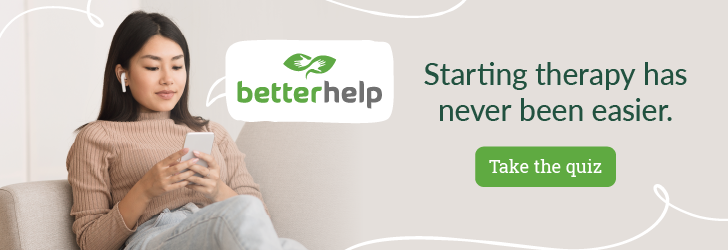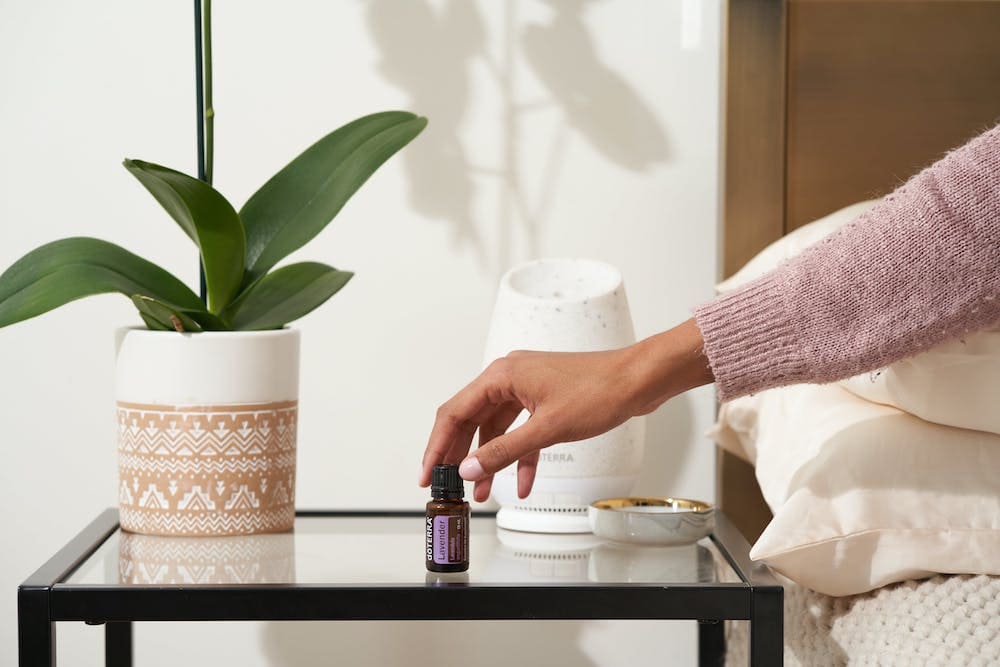Full Disclosure: Clicking on these links could mean a tiny commission for me, at no extra cost to you.
We all carry a unique tune of experiences, emotions, and challenges. It’s a journey that, at times, feels like trying to navigate through a crowded room blindfolded. We’ve all been there, right? And in those moments when life gets a bit too overwhelming, therapy emerges as a powerful ally, a place where we can share our struggles and unravel the complexities of our minds. In this article, we discuss the benefits of using therapy for mental health difficulties.
Best Types of Online Therapy for Mental Health Issues
- Best for Availability → BetterHelp
- Best for Couples → ReGain
- Best for Psychiatry → Hims/Hers
- Best for Teens → Teen Counseling
- Best for Anxiety and Depression → Brightside
- Best for LGBTQIA+ → Pride Counseling
What is Therapy?
Therapy, often referred to as psychotherapy or counseling, is a therapeutic process where you work with a trained and licensed mental health professional to explore and address emotional, psychological, and behavioral challenges. The goal of therapy is to provide support, promote self-awareness, and provide you with effective coping strategies to manage and overcome difficulties in their lives.
Therapists, which can include psychologists, psychiatrists, social workers, counselors, or other mental health professionals, create a safe and non-judgmental environment for clients to discuss their thoughts and feelings openly. The therapeutic relationship is built on trust, and therapists employ various therapeutic approaches and techniques to help you better understand themselves, develop coping skills, and make positive changes in their lives.
What to Expect From Therapy for Mental Health
Therapy can be beneficial for a wide range of mental health concerns, including but not limited to anxiety, depression, stress, trauma, relationship issues, grief, and personal growth. It can be delivered in various formats, such as individual therapy, online group therapy, couples therapy, or family therapy. The specific approach and duration of therapy depend on your individual needs and the therapeutic modality chosen by the therapist.
Key aspects of therapy for mental health include:
- Safe and Supportive Environment: Therapy creates a safe and non-judgmental space for you to express their thoughts, emotions, and concerns.
- Exploration and Understanding: Therapists help you explore and understand their thoughts, feelings, and behaviors, often uncovering patterns and underlying causes.
- Coping Skills Development: Therapists work with you to develop effective coping mechanisms and strategies to manage stress, anxiety, depression, and other mental health challenges.
- Identification of Goals: Therapists work with you to set specific and achievable goals.
- Various Therapeutic Approaches: Therapy can be delivered through a variety of therapeutic approaches, including cognitive-behavioral therapy (CBT), psychodynamic therapy, humanistic therapy, and more. The approach chosen often depends on the individual’s needs and the therapist’s expertise.
- Individualized Treatment: Therapy is catered to the unique needs and circumstances of each individual, recognizing that everyone’s experiences and challenges are different.
- Emphasis on Self-Reflection and Self-Discovery: Through therapy, you are encouraged to engage in self-reflection and self-discovery, gaining deeper insights into themselves and their motivations.
- Support for Various Mental Health Concerns: Therapy is used to address a wide range of mental health concerns, including anxiety, depression, trauma, grief, relationship issues, and more.
- Building a Therapeutic Relationship: The therapeutic relationship between you and therapist is crucial, fostering trust and collaboration. This relationship provides a foundation for positive change.
- Promotion of Personal Growth: Beyond symptom reduction, therapy often focuses on promoting personal growth, helping you lead more fulfilling and satisfying lives.
Therapy is not a one-size-fits-all solution, and the duration and frequency of sessions can vary based on individual needs. It is important to note that seeking therapy is a proactive step towards self-care and mental health, and it is a valuable resource for anyone facing various challenges in their lives.
Types of Therapy for Mental Health
There are various types of therapy, each with its unique approach and techniques. The choice of therapy depends on the individual’s specific needs, the nature of the mental health concern, and the preferences of both the individual and the therapist. Here are some common types of therapy for mental health:
- Cognitive-Behavioral Therapy (CBT): CBT is a goal-oriented and practical approach that focuses on identifying and changing negative thought patterns and behaviors. It is effective for a wide range of issues, including anxiety, depression, and phobias.
- Psychodynamic Therapy: Rooted in Freudian principles, psychodynamic therapy explores unconscious processes and unresolved conflicts that may contribute to emotional and behavioral issues. It often involves gaining insight into past experiences.
- Humanistic Therapy: Humanistic therapies, such as person-centered therapy, emphasize self-exploration, personal growth, and the development of one’s potential. The therapist provides a supportive and empathetic environment.
- Mindfulness-Based Therapies: Mindfulness-based therapies, including Mindfulness-Based Stress Reduction (MBSR) and Mindfulness-Based Cognitive Therapy (MBCT), incorporate mindfulness and meditation practices to promote awareness and reduce stress.
- Dialectical Behavior Therapy (DBT): DBT is often used to treat individuals with borderline personality disorder and focuses on developing skills for emotional regulation, distress tolerance, interpersonal effectiveness, and mindfulness.
- Interpersonal Therapy (IPT): IPT is a time-limited therapy that addresses interpersonal issues and focuses on improving communication and relationships. It is often used for depression and other mood disorders.
- Family Therapy: Family therapy involves working with families to improve communication, resolve conflicts, and address issues affecting the entire family system. It can be beneficial for various mental health concerns.
- Behavioral Therapy: Behavioral therapies, such as Applied Behavior Analysis (ABA) and exposure therapy, focus on modifying behaviors through reinforcement, conditioning, and systematic desensitization.
- Existential Therapy: Existential therapy explores themes of meaning, purpose, and personal responsibility. It encourages you to confront existential challenges and make choices that align with their values.
- Narrative Therapy: Narrative therapy views individuals as the authors of their own stories. It helps reshape and reinterpret personal narratives, empowering you to change their perspectives on challenges.
- Trauma-Focused Therapy: Therapies like Eye Movement Desensitization and Reprocessing (EMDR) and Trauma-Focused Cognitive Behavioral Therapy (TF-CBT) specifically address the impact of trauma on mental health.
- Art Therapy and Expressive Therapies: These therapies utilize creative expressions, such as art, music, or movement, to help you explore and communicate emotions that may be difficult to express verbally.
It’s important to note that therapists often integrate techniques from multiple therapeutic approaches based on the individual needs of their clients. Additionally, the effectiveness of therapy can be influenced by the quality of the therapeutic relationship between the client and the therapist.
How to Use Online Therapy for Mental Health Difficulties
Online therapy, also known as teletherapy or telehealth, refers to mental health therapy sessions through digital platforms and communication technologies. Instead of meeting with a therapist in person, you can access therapy sessions remotely. This typically happens through video calls, phone calls, or text-based communication.
Online therapy has become increasingly popular due to its convenience, accessibility, and the growing use of digital communication tools. Here are some key aspects of online therapy:
Video Conferencing
Many online therapy sessions take place through video conferencing platforms, allowing individuals and therapists to see and interact with each other in a virtual face-to-face setting.
Phone-Based Therapy
Some online therapy services offer sessions conducted over the phone. This provides an alternative for anyone who may not have access to video conferencing or prefer voice-only communication.
Chat and Messaging Therapy
Text-based therapy involves communication through chat or messaging platforms. Individuals and therapists exchange written messages, offering a more asynchronous and flexible form of interaction.
Online therapy also tends to be more cost-effective than traditional therapy. There is greater flexibility in scheduling appointments and you are able to receive the consistent therapeutic support even when facing disruptions such as travel, relocation, or other life changes.
The Best Online Therapy Options
Given the importance of finding the right platform, it’s highly recommended to explore the various types of online therapy available and choose the one that best suits you. Discovering the platform that resonates with your preferences and needs can significantly enhance the effectiveness of your therapeutic journey. Take the time to research and consider the features, benefits, and user experiences offered by different platforms. Your mental health is a priority. Finding the perfect platform for you is a crucial step towards fostering positive and meaningful change.
To help you out on your journey, here are the best places for online therapy:
Better Help
advertisement

Price: $65 to $90 per week
Better Help offers access to licensed therapists through video, phone, and chat sessions. They use an algorithm to match users with therapists based on their preferences and needs. It is one of the leading online therapy platforms that connects you with licensed mental health professionals. The platform aims to make mental health care more accessible, convenient, and affordable.
Try Now: Take The ‘Find a Therapist’ Quiz
Teen Counseling
advertisement

Price: $65 to $90 per week
Try Now: Teen Counseling
Pride Counseling
advertisement

Price: $60 and $90 per week
Pride Counseling is an online therapy platform specifically designed to provide mental health support for the LGBTQ+ community. Pride Counseling connects users with licensed therapists who understand the unique challenges and experiences faced by people within the LGBTQ+ community.
Try Now: Pride Counseling
ReGain Couples Therapy
advertisement

Price: $260-$360+ per month
Regain, now known as BetterHelp for Couples, is an online therapy platform that specializes in providing counseling services for couples. The platform acknowledges that relationships can face various challenges. As such, it offers a convenient and accessible way for couples to seek professional support and guidance.
Try Now: ReGain Couples Therapy
Bright Side Therapy
Bright Side Therapy offers comprehensive anxiety and depression therapy. Their unique and data-driven approach helps you identify harmful thought patterns, then break the exhausting cycle with new habits. Bright Side also provides you with self-guided video lessons and the ability to fill your mental health prescription medications.
Try Now: Take The Free Assessment
The effectiveness of online therapy depends on factors such as the individual’s comfort with technology, the nature of the therapeutic relationship, and the specific mental health issues being addressed. Anyone considering online therapy should ensure that the platform and therapist they choose adhere to ethical and professional standards.
Additional Resources
At Anxiety Gone, we believe in healing together. We’ve partnered with trusted wellness organizations to bring you the most effective tools, insights, and support. Some links may earn us a commission — always at no extra cost to you.
Join The Club
Connect with our private self-care community for daily support, exclusive tips, and inspiration. Join us today
Talk Therapy
Get matched with licensed therapists online through BetterHelp and begin your healing today. Start now
Hims/Hers
Receive personalized, affordable mental health care + medication from home — no insurance required. Learn more
Mental Health, Right to your Inbox
Subscribe to our newsletter for a place to rest your mental health and find ways to support your journey. Sign up
Emotional Freedom Technique
Tap your way to calm with scientifically backed stress relief. Our readers receive a 14-day free trial! Try EFT now
Mindfulness App
Access 2,000+ guided practices to support your mental health wherever you are + exclusive discount when you upgrade Try it
Online Breathwork
Experience calm and reset your nervous system with guided sessions and receive your first month free . Get started
Find a Helpline
If you need immediate support, visit our directory to find help near you. See helplines









